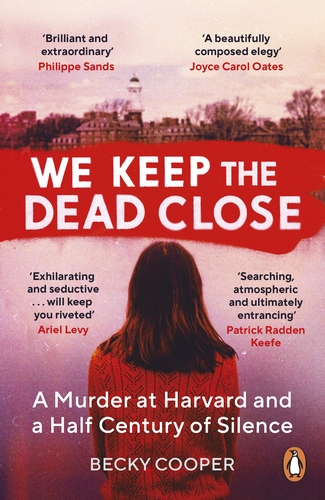While she was still a student at Harvard, Becky Cooper was told about a 1969 postgraduate student of archaeology, Jane Britton, who was found murdered in her apartment after failing to present herself for her General examinations. Traces of red ochre found at the scene seemed to suggest that Jane’s killer might have an association with the Archaeology department itself, that in all probability she had known her attacker.
Jane’s story was told to Cooper almost as a warning – that Harvard was not always a safe place to be, especially for women. Jane had been a singular individual, someone who made an impression on everyone who came into contact with her. There had been people in her life who thought she sailed too close to the wind. Others who nurtured unspoken jealousies. Jane’s murder was shocking, but more shocking still was the silence that seemed to descend in the wake of it. Friends stopped talking about her. Her family were too distraught and divided amongst themselves to discuss what had happened. Following the initial inquiry, the police had drawn a blank. Though there were whispers and rumours among the students who had known Jane and studied with her, no one was ever charged with her murder. The police refused to divulge Jane’s records, even though no work had been done on the case, seemingly, for decades.
The more Cooper’s questions multiplied, the deeper her obsession with the case became. She felt a personal connection to Jane that was hard to define but that would not let go of her. Determined to unravel the web of clues, false leads and tenuous connections that had confounded the police, she sets out on a journey to discover what she can. Ten years later, and just at the point where it seems the truth of Jane’s life and death might never be known, new evidence comes to light that throws all previous assumptions into confusion.
We Keep the Dead Close is a book in which the personal and the political are in perfect alignment. Cooper never loses sight of the story – what really happened? – but she is thorough and unstinting too in her pursuit of wider questions: how are women treated by the academic world? How far must women comply with the norms society expects of them in order to stay ‘safe’? What can we ever really know about another person, especially a person who is no longer around to speak for themselves?
Cooper’s writing is tactile, evocative and powerful in its arguments, above all because Cooper takes the risk of allowing herself to become a part of the story. Anyone who doubts the importance and social relevance of true crime writing might begin their reading here.
